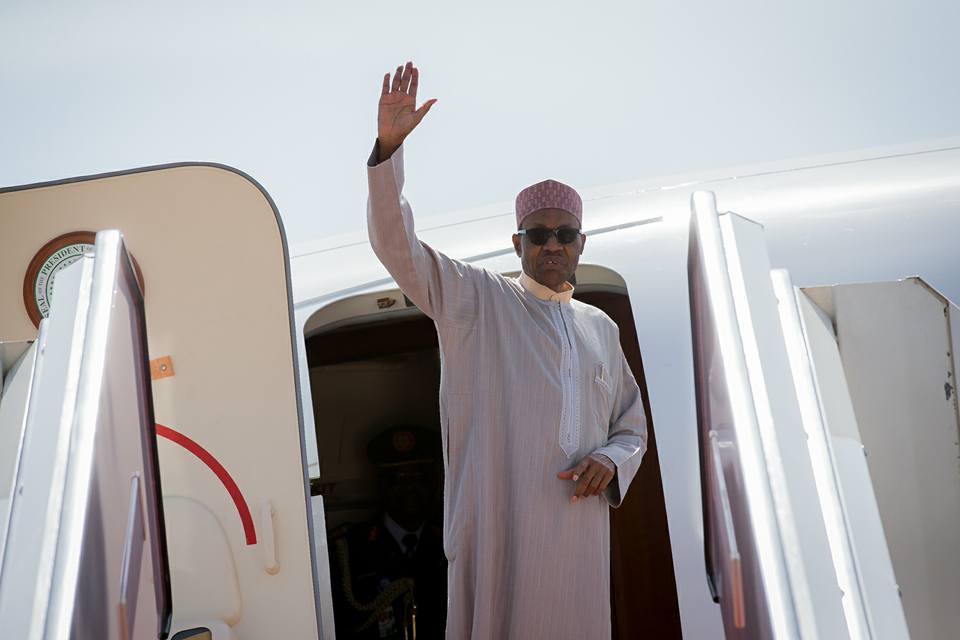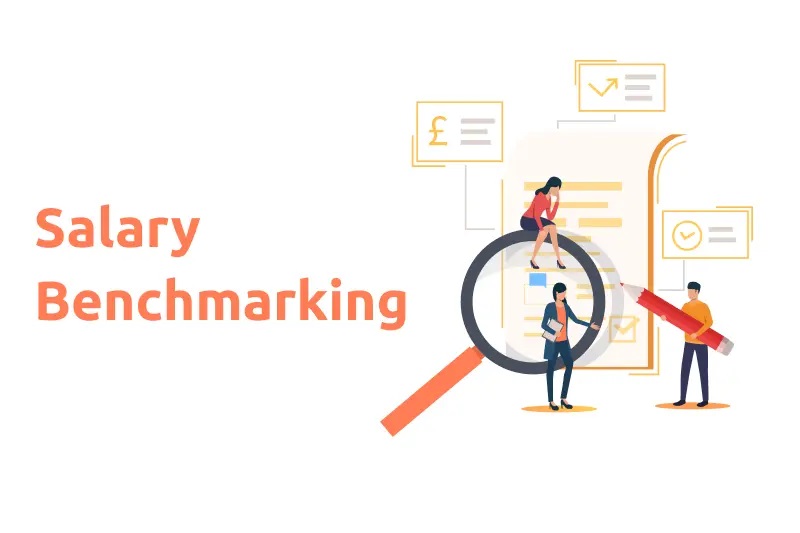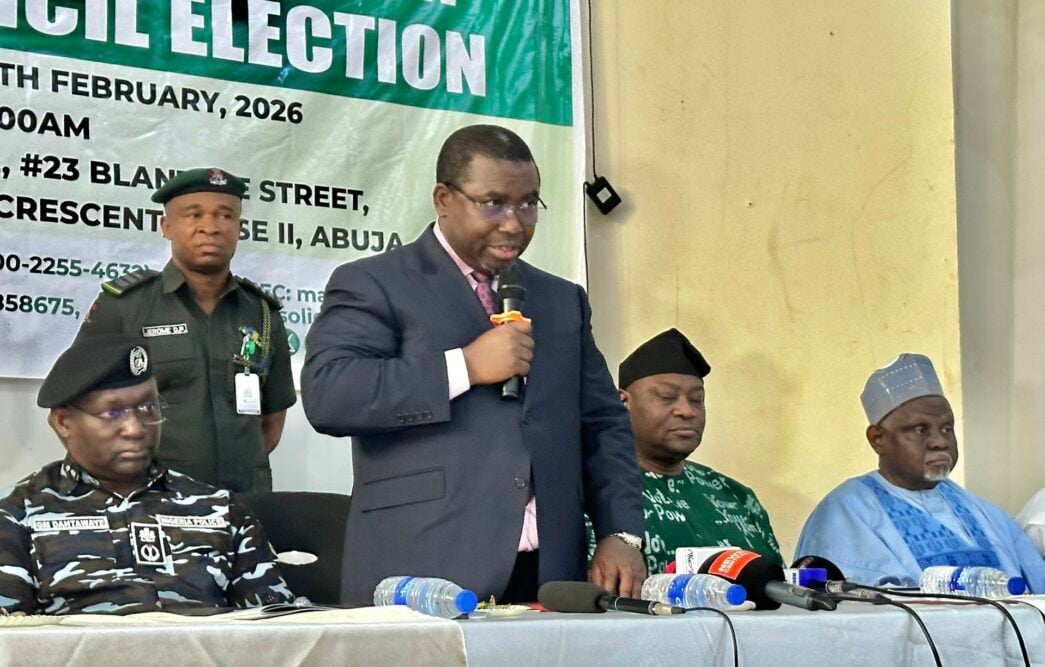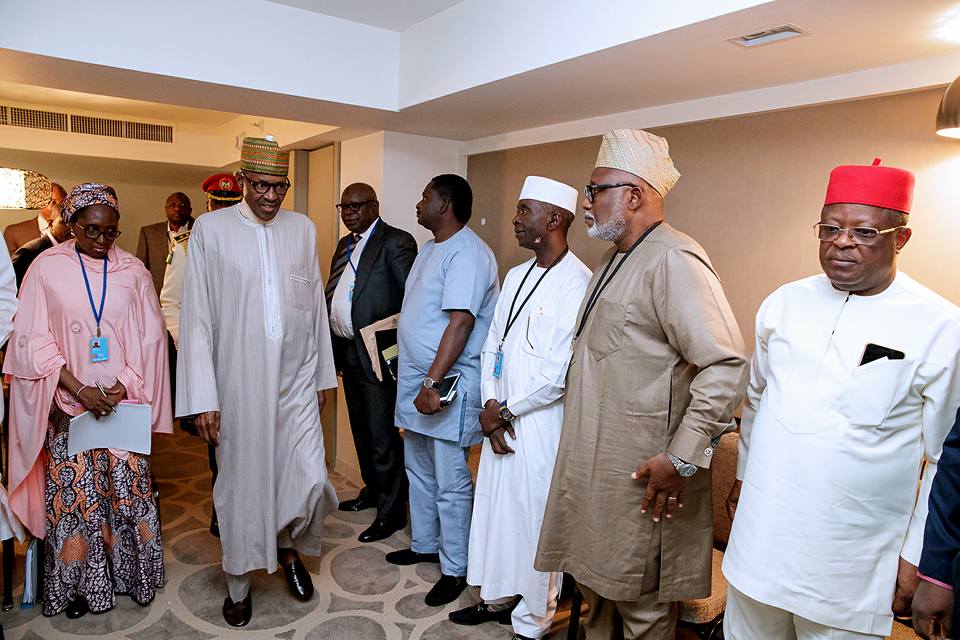General
Full Text of President Buhari’s New Year Address Jan 1, 2018

I join my fellow citizens this morning to welcome and celebrate the New Year 2018. This year promises to be pivotal in our quest for CHANGE.
Unfortunately, I am saddened to acknowledge that for many this Christmas and New Year holidays have been anything but merry and happy. Instead of showing love, companionship and charity, some of our compatriots chose this period to inflict severe hardship on us all by creating unnecessary fuel scarcity across the country.
The consequence was that not many could travel and the few who did had to pay exorbitant transport fares. This is unacceptable given that NNPC had taken measures to ensure availability at all depots. I am determined to get to the root of this collective blackmail of all Nigerians and ensure that whichever groups are behind this manipulated hardship will be prevented from doing so again.
Such unpatriotism will not divert the Administration from the course we have set ourselves. Our government’s watch word and policy thrust is CHANGE. We must change our way of doing things or we will stagnate and be left behind in the race to lift our people out of poverty and into prosperity.
My address to fellow Nigerians this morning is devoted mainly to informing you about the intense efforts this Administration is putting to address our country’s huge infrastructural deficit.
We are going to make significant in-roads in advancing road, rail and power projects across the country.
The Ministry of Power, Works and Housing is one of the drivers of this Government’s commitment to renew and increase Nigeria’s stock of infrastructure in order to achieve global economic competitiveness as targeted under the Economic Recovery and Growth Plan.
With regards to Railways, we have set ourselves ambitious targets. Already in construction stage is the Lagos-Kano Standard Gauge Railway.
The line should reach Ibadan from Lagos by the end of this year and will carry two million passengers per year and five million tons of cargo will be transported every year giving a substantial boost to the country’s economy.
Construction of the Kano – Kaduna segment is expected to commence this year and reach Kaduna by the end of 2019. By the end of 2021 the two ends will be joined so that we will have standard gauge railway across the main North-South trading route.
The Abuja – Kaduna route will be boosted by additional rolling stock next Thursday and will be able to handle one million commuters annually.
At the same time I have approved and negotiations will be concluded in the first part of this year for the Port Harcourt to Maiduguri line covering Aba, Owerri, Umuahia, Enugu, Awka, Abakaliki, Makurdi, Lafia, Jos, Bauchi, Gombe, Yola and Damaturu. The Abuja to Itakpe line will go through Baro and terminates in Warri with construction of a new seaport at Warri.
Negotiations are also advanced for the construction ofother railway lines, firstly from Kano to Maradi in Niger Republic passing through Kazaure, Daura, Katsina, Jibiato Maradi.
Secondly, Lagos to Calabar the “Coastal Rail” through Ore, Benin, Agbor, Asaba, Onitsha, Sapele, Ughelli, Warri, Yenagoa, Otuoke, Port Harcourt, Aba, Uyo and Calabar. In the next few years, all these Nigerian cities will be linked by functional modern rail systems, giving enormous boost to the social and economic life of our people.
With respect to the Abuja Capital Light Rail, progress has reached 98% completion, as at 64% completion when we assumed office. Only test runs remain before start of operations.
This train service will stimulate economic activities in the Federal Capital and provide residents with an efficient and safe transportation system. Twelve railway sub-stations around the capital over a 45.2 kilometre route will serve as a catalyst and a pull factor to the economy of the area. The Light Rail System will reduce traffic congestion and carbon emission in line with the Administration’s policy on climate change.
Management of the Federal Road Maintenance Agency (FERMA) has been reconstituted and has been charged with a 12 week rapid intervention in road repairs to cover all the geo-political zones. Government is undertaking repairs and maintenance of 44 roads within the the six geo-political zones.
Twenty five major highways will be funded under the N100b SUKUK facility. Each geo-political zone will benefit by an equal amount of N16.67b. The following major highways are to receive special attention:
- Oyo – Ogbomosho,
- Ofusu – Ore – Ajebandele – Shagamu,
- Yenegoa Road Junction – Kolo Otuoke – Bayelsa Palm,
- Enugu – Part Harcourt Dual Carrriage Way,
- Onitsha – Enugu Expressway,
- Kaduna Eastern Bypass,
- Dualization of Kano – Maiduguri Road,
- Dualization of Abuja – Lokoja – Benin Road,
- Dualization of Suleja – Minna Road.
In addition, Government has approved work to start on the re-construction of Abuja – Kaduna – Zaria – Kano roadwhich is in a state of disrepair. Work will soon start and is expected to be completed in 2019.
More Nigerians across the country are experiencing improved power supply to their homes and businesses. However, power remains a concern to this governmentbecause too many people still do not have regular and reliable supply.
The Payment Assurance Guarantee Scheme which started in January 2016 has enabled the Nigerian Bulk Electricity Trader to raise so far N701 billion to assure Generation Companies of at least 80% payment for any power delivered to the national grid.
Consequently, generation has now reached 7,000MW. On December 8, 2017 the country achieved 5,155MW of power delivered to consumers, the highest level ever recorded.
Several moribund projects have been revived. Repairs of Afam Power Station added 110MW in 2017 and another 240MW will be added this year through a private investment partnership.
Katsina Power Project is now being tested and producing 10MW of power from wind for the first time in Nigeria. It should be fully operational this year.
The Zungeru 700MW Hydroelectric Power Project, stalled by court cases is due for completion in 2019. The transmission and other requirements to operate the 30MW Gurara Phase 1 Hydroelectric Plant, the 40MW KashinbillaHydroelectric Plant and the 215 MW Kaduna Gas/LPG/Diesel Power Plant will also be completed this year.
A landmark project, Mambilla Hydroelectric Power Project is at last taking off. This project has been on the drawing Board for 40 years, but now the engineering, procurement and construction contract for the 3,050MW project has been agreed with a Chinese joint venture Company with a financing commitment from the government of China. Completion is targeted for 2023.
As I mentioned earlier, the Transmission Company of Nigeria can now distribute all the 7,000MW that can be generated. TCN and the Niger Delta Holding Company have added 1,950MVA of 330 down to 132KV transformer capacity of 10 transmission stations and 2,930MVA of 132 down to 33KV transformer capacity of 42 sub-stations including Ikot Ekpene, Aba, Alagbon, Ajah, Ejigbo, Funtuaand Zaria.
This Administration is working with the privatised distribution Companies to overcome the continuing challenges of distribution.
These massive public works should spearhead the recovery and lead millions back to employment. You will recall that it was not until last year that we got out of the economic recession into which the country had fallen as a consequence of past unsustainable economic policies which projected short-term illusory growth.
The government is slowly stabilizing the economy.
It was in order to change the steady and steep decline that we adopted the more sustainable policies and programmes captured in the Economic Recovery Plan. Diversification efforts have resulted in improved output particularly in agriculture and solid minerals sectors. The relative exchange rate stability has improved manufacturing sector performance.
We have got to get used to discipline and direction in economic management. The days of business as usual are numbered.
Two years ago I appealed to people to go back to the land. I am highly gratified that agriculture has picked up, contributing to the government’s effort to re-structure the economy. Rice imports will stop this year. Local rice, fresher and more nutritious will be on our dishes from nowon.
By the same token, I am today appealing to enterprising Nigerians with ideas and unemployed graduates and other able-bodied and literate men and women with ideas not to just sit and wait for employment from the government or the Organized Private Sector. Great nations are built by enterprising people who turn their hands to anything that circumstances dictate.
In respect of political developments, I have kept a close watch on the on-going debate about “Restructuring”. No human law or edifice is perfect. Whatever structure we develop must periodically be perfected according to changing circumstances and the country’s socio-economic developments. We Nigerians can be very impatient and want to improve our conditions faster than may be possible considering our resources and capabilities. When all the aggregates of nationwide opinions are considered, my firm view is that our problems are more to do with process than structure.
We tried the Parliamentary system: we jettisoned it. Now there are shrill cries for a return to the Parliamentary structure. In older democracies these systems took centuries to evolve so we cannot expect a copied system to fit neatly our purposes. We must give a long period of trial and improvement before the system we have adopted is anywhere near fit for purpose.
However, there is a strong case for a closer look at the cost of government and for the public services long used to extravagance, waste and corruption to change for the better. I assure you that government is ever receptive to ideas which will improve governance and contribute to the country’s peace and stability.
As the electioneering season approaches politicians must avoid exploiting ethnicity and religion by linking ethnicity with religion and religion with politics. Such must be avoided at all costs if we are to live in harmony.
In this respect the rest of Nigeria could learn from the South Western States who have successfully internalized religion, ethnicity and politics.
Political discourse should be conducted with civility, decorum and in a constitutional manner. We all have a collective responsibility to strengthen our democracy and entrench the rule of law. We should draw encouragement from the series of bye-elections conducted by INEC last year which were generally violence free and their outcomes adjudged to be free and fair.
Before I conclude my address I must reassure my fellow citizens that security of life and property is still top of our government’s agenda. We have since beaten Boko Haram. Isolated attacks still occur, but even the best-policed countries cannot prevent determined criminals from committing terrible acts of terror as we have seen during the past years in Europe, Asia, Middle East, elsewhere in Africa and in America.
Our government remains determined to protect all Nigerians in line with our election pledge and promises. On behalf of all Nigerians let me offer our thanks to the Armed forces, the Police, other para-military forces and traditional authorities who are working round the clock to ensure that you and I go about our normal business in reasonable safety.
Terrorism and urban crimes are world-wide phenomena and our security forces are continuously adapting their responses to changing threats.
With regard to rampant cases of kidnappings, we are taking immediate short-term measures to combat this new evil creeping into our societies. Tighter police methods and swift and severe punishment for those proved to be engaged in kidnapping are on the way.
With respect to Niger Delta, Government is still engaging responsible leadership of the Communities to help in identifying and addressing genuine grievances of the region. Our clean-up programme in collaboration with the United Nations is making satisfactory progress.
I am grateful to all the Governors and other Political &Community leaders of the Niger Delta States for their part in bringing relative peace to the areas.
Finally let me again express my heartfelt thanks to all Nigerians who prayed for me during my illness last year. I feel deeply humbled by your prayers and good wishes and I am more determined than ever to serve you to the best of my ability.
Good morning. And I wish everyone a Happy New Year.
General
Salary Benchmarking To Ensure Competitive Compensation

Salary benchmarking is the systematic process of comparing an organization’s pay rates, bonus programs, and total rewards against market standards. This article walks through why benchmarking matters, how to prepare and run an analysis, the best data sources and tools, and how to turn findings into defensible pay structures and ongoing processes.
Why Salary Benchmarking Matters For Online Businesses And Agencies
Without benchmarking, organizations risk three costly outcomes: underpaying (leading to high turnover and loss of institutional knowledge), overpaying (inflating fixed costs and reducing agility), or misallocating compensation across roles (creating internal inequities and morale problems).
For agencies that pitch retainer-driven services, predictable labor costs tied to market rates enable healthier margins and clearer pricing decisions. For in-house ecommerce teams, benchmarking supports workforce planning when launching new product lines or scaling paid acquisition efforts.
Finally, benchmarking is not only financial: it signals professionalism to candidates.
Key Data Sources And Tools For Accurate Benchmarks
High-quality benchmarking blends public data, commercial platforms, and human intelligence.
Public Government And Aggregated Salary Data
Bureau of Labor Statistics (BLS) or national equivalents provide reliable occupational wage ranges, useful for baseline comparisons and compliance checks.
Industry Surveys, Salary Platforms, And Niche Reports
Platforms such as Payscale, Glassdoor, LinkedIn Salary, and specialized reports for marketing and tech roles give role- and location-specific distributions.
Recruiter Intelligence And Peer Networks
Recruiters and hiring agencies provide real-time insight into candidate expectations and accepted offers. Professional networks, Slack communities, and agency owner peer groups can also offer current market anecdotes that databases miss.
Internal Payroll Data And Turnover Metrics
Historical payroll, hiring velocity, offer-acceptance rates, and exit interview themes help normalize market data against internal realities. Using multiple inputs helps find a defensible midpoint.
How To Conduct A Benchmark Analysis Step By Step
A repeatable process keeps benchmarking actionable and defensible.
- Gather data from at least three sources: one government/aggregate, one commercial salary platform, and one recruiter/peer input.
- Normalize data for location and experience. Convert salaries to equivalent cost-of-living or remote-adjusted values if the company has distributed teams.
- Adjust for total compensation. Include expected bonus, commissions, equity, and benefits to compare total rewards, not just base pay.
- Build a comparison table with target percentiles (25th, 50th, 75th) for each role and highlight gaps vs. current pay.
- Prioritize changes. Use a matrix that weighs business impact, retention risk, and budget feasibility to recommend immediate, near-term, and deferred adjustments.
This framework produces a clear narrative: where pay is behind, how much closing the gap will cost, and which adjustments will most protect revenue and client delivery.
Translating Benchmark Results Into Pay Structures And Budgets
Benchmark results must become predictable pay structures.
Normalize Data For Location, Experience, And Role Level
Apply consistent location multipliers and level definitions (junior, mid, senior, lead) so internal fairness stands up to scrutiny.
Build Pay Bands, Ranges, And Target Percentiles
Create bands with minimums, midpoints, and maximums tied to the chosen target percentiles. Bands help managers make consistent offer decisions and reduce bias.
Model Total Cost Of Hire And Budget Impact
Factor in employer taxes, benefits, onboarding costs, and ramp time. Present scenarios that show both absolute costs and return-on-investment when a higher-paid senior reduces client churn or improves campaign ROI.
Design Salary Bands, Bonus Structures, And Noncash Benefits
Consider sales- or performance-linked bonuses for account managers and revenue-attributed roles. Align Compensation To Performance, Retention, And Career Paths
Tie movements within bands to objective competency milestones (e.g., “strategic link acquisition that improves DR by X points” or “reduced time-to-rank for client cohort”), creating transparent merit progression that drives retention.
Communicating, Implementing, And Ensuring Pay Equity
Change management is as important as the numbers.
Gain Leadership Buy-In And Set Change Management Steps
Present benchmarking findings with clear ROI scenarios and phased implementation options. Leadership will respond to cost/benefit clarity, show how targeted raises stabilize revenue-generating roles.
Communicate Changes To Employees And Handle Pushback
Be transparent about methodology and timelines. Provide managers with scripts explaining why adjustments are happening and how employees can progress to higher bands.
Document Compliance, Pay Equity, And Recordkeeping Practices
Maintain audit-ready records of data sources, decision rationales, and salary matrices. Regularly run pay-equity checks by gender, race, and tenure to avoid legal and moral risks.
Thoughtful communication reduces rumors and ensures raises are seen as strategic investments, not arbitrary rewards.
Ongoing Monitoring: KPIs, Review Cadence, And Market Adjustments
Benchmarking isn’t a one-off. It requires monitoring and simple KPIs.
Track Competitive Positioning, Turnover, And Time To Fill
KPIs should include average comp vs. market percentile, voluntary turnover by role, offer-acceptance rate, and time-to-fill for critical positions. These metrics signal when the market has shifted.
Schedule Regular Reviews And Trigger-Based Market Rechecks
A typical cadence is an annual formal benchmark with quarterly spot checks for priority roles. Trigger-based rechecks, when turnover spikes, when offer-acceptance drops below a threshold, or when the market is disrupted, keep pay competitive between formal cycles.
With a small set of KPIs and a clear review cadence, agencies and online businesses can avoid reactive panic hires and keep compensation aligned with strategy and market reality.
Conclusion
Salary benchmarking equips online businesses and agencies to hire and retain the right talent without sacrificing profitability. When done well, benchmarking clarifies where to invest, makes offers defensible, and reduces turnover among roles that materially affect client outcomes and rankings.
General
BPP Confirms N1.1trn Savings from Procurement Reforms in 2025

By Adedapo Adesanya
The Bureau of Public Procurement(BPP) said the ongoing procurement reforms saved the federal government over N1.1 trillion between January and December 2025.
The Director-General of the bureau, Mr Adebowale Adedokun, revealed this while defending the agency’s 2026 budget before the Senate Committee on Public Procurement in Abuja on Thursday.
The bureau also reported reduced contract approval timelines, additional cost savings, and tougher sanctions imposed on erring contractors and non-compliant government officials.
Mr Adedokun appealed for increased budgetary allocation in 2026 to enhance service delivery, create jobs, and strengthen institutional capacity for procurement oversight.
He further revealed that the bureau received N4.032 billion in 2025 and sought higher funding to reinforce anti-corruption efforts under the administration of President Bola Tinubu.
Earlier, the Chairman of the Senate Committee, Mr Olajide Ipinsagba, a lawmaker from Ondo North, underscored the bureau’s strategic role in driving socioeconomic development and promoting fiscal discipline.
Mr Ipinsagba assured the agency of legislative support while urging strict accountability and prudent utilisation of public funds allocated for its operations.
BPP reforms were committed to deepening transparency, compliance, and efficiency in Nigeria’s public procurement system. Some of them include adherence to a 21-day timeline, as mandated by the Public Procurement Act 2007. Also, the BPP is required to review cases, issue a written decision within 21 working days of receiving the complaints, and state the corrective actions, reasons for rejection, or remedies granted.
There are also plans to streamline approval processes, standardise documentation, and automate workflows to ensure timely and transparent procurement decisions.
General
FCT Council Elections: Police Impose 12-Hour Curfew

By Adedapo Adesanya
The Federal Capital Territory (FCT) Command of the Nigeria Police Force (NPF) has announced a 12-hour restriction on movement across Abuja and its environs ahead of the council elections scheduled for Saturday, February 21, 2026.
In a statement, the Police Public Relations Officer of the FCT Command, Mrs Josephine Adeh, said the movement will be restricted to ensure security and the smooth conduct of the polls.
“The Commissioner of Police, FCT Command, Miller G. Dantawaye, psc., has announced a restriction of movement across the Federal Capital Territory from 6:00 AM to 6:00 PM on Saturday, 21st February, 2026, in view of the scheduled Area Council Elections,” the statement read.
The police clarified that the restriction will apply to all residents, except essential service providers and duly accredited election officials.
The command also called on residents to remain peaceful and cooperate with security agencies.
“The FCT Police Command urges residents to remain peaceful, law-abiding, and cooperate with security agencies to ensure a safe, free, and credible electoral process,” the statement added.
Meanwhile, the FCT Minister, Mr Nyesom Wike, declared Friday a work-free day ahead of the council elections.
In a broadcast, Mr Wike said the decision, approved by President Bola Tinubu, is to enable residents to travel to their communities to vote.
In contrast to the police announcement, the minister declared a separate restriction of movement across the FCT from 8:00 p.m. on Friday to 6:00 p.m. on Saturday, directing security agencies to ensure compliance.
Mr Wike urged residents to turn out in large numbers and conduct themselves peacefully, expressing optimism that the polls would produce leaders who would promote development and stability in the territory.
In the meantime, the Independent National Electoral Commission (INEC) says preparations for the elections are at an advanced stage, with strong voter participation recorded during the PVC collection exercise.
INEC disclosed that 1,587,025 Permanent Voter Cards (PVCs) have been collected across the FCT, representing a 94.4 per cent collection rate out of the 1,680,315 registered voters.
Security agencies have assured residents of adequate deployment across the territory to maintain order, as authorities emphasise the need for a peaceful, free, and credible electoral process.
-

 Feature/OPED6 years ago
Feature/OPED6 years agoDavos was Different this year
-
Travel/Tourism10 years ago
Lagos Seals Western Lodge Hotel In Ikorodu
-

 Showbiz3 years ago
Showbiz3 years agoEstranged Lover Releases Videos of Empress Njamah Bathing
-

 Banking8 years ago
Banking8 years agoSort Codes of GTBank Branches in Nigeria
-

 Economy3 years ago
Economy3 years agoSubsidy Removal: CNG at N130 Per Litre Cheaper Than Petrol—IPMAN
-

 Banking3 years ago
Banking3 years agoSort Codes of UBA Branches in Nigeria
-

 Banking3 years ago
Banking3 years agoFirst Bank Announces Planned Downtime
-

 Sports3 years ago
Sports3 years agoHighest Paid Nigerian Footballer – How Much Do Nigerian Footballers Earn














